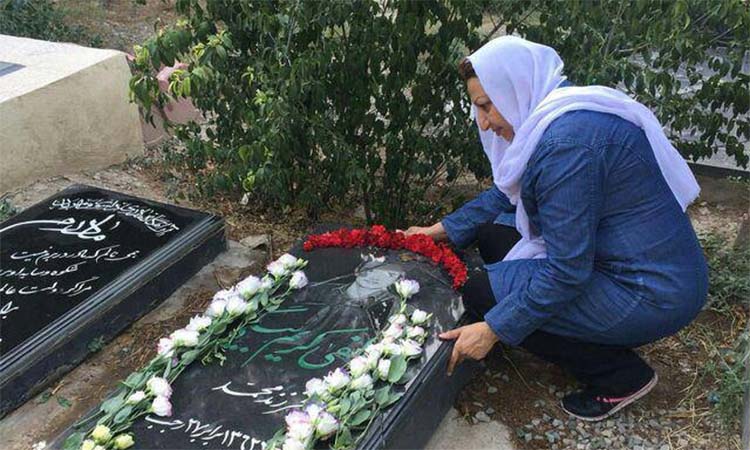CHRI – Appeals Court Upholds Sentence against Shahnaz Akmali
Shahnaz Akmali, the mother of a protester who was killed in a pro-democracy rally, must serve a year in prison, an Appeals Court in Iran has decided, for her attempts to seek justice for her son.

“My mother’s sentence was upheld by the Appeals Court while my brother’s murder case is gathering dust in the same court that convicted my mother,” tweeted Maryam Karim Beigi on September 30th, 2019. “It’s not too much to expect his killer to be in prison, instead of my mother for seeking justice.”
Akmali has been ceaselessly campaigning for justice for her son, Mostafa Karim Beigi, who died from a bullet wound to the head at a protest rally in Tehran on December 27, 2009, during what came to be known as the Green Movement against the widely disputed outcome of that year’s presidential election.
Iranian authorities have refused to conduct an investigation.
Arrested by the Intelligence Ministry in January 2017, Akmali was sentenced to a year in prison for “propaganda against the state” in connection with her activities as a member of the grieving Mothers of Laleh Park, a group of victims of political violence.
In his October 2017 verdict, Judge Mashallah Ahmadzadeh of Branch 26 of the Revolutionary Court also banned the 54-year-old mother from leaving the country, engaging in political activities, and posting on social media for a year after the completion of her prison sentence.
“The judge’s order states that the verdict against Akmali was based on the Intelligence Ministry’s report and her own confessions, making her defense in court irrelevant,” a legal source told the Center for Human Rights in Iran (CHRI) on October 26, 2017.
“However, the Intelligence Ministry report was biased and full of lies and her confessions did not reveal any criminal activity. For example, she said she posted things on the Telegram channel for the Mothers of Laleh Park and attended a protest rally in 2009, almost 10 years ago. First of all, these are not crimes. Second, these confessions were made under threats and pressure while she was held in solitary confinement without access to a lawyer or her family.”
Iran has a long and documented history of extracting forced “confessions” from individuals in state custody, under intense psychological and /or physical pressure, and then using those false confessions as evidence to convict in sham prosecutions.
The source continued: “The court banned Ms. Akmali from using cyberspace because after she was released on bail, she shared information about her case. But if her arrest and detention were conducted lawfully, why should the news worry the authorities?
“How can you ban someone from cyberspace? Does that mean she cannot use the internet at all? That’s very strange; it’s impossible. That would mean she couldn’t even contact her relatives through the internet. This is against freedom of speech. It’s illegal and impossible.”
 Shabtabnews In this dark night, I have lost my way – Arise from a corner, oh you the star of guidance.
Shabtabnews In this dark night, I have lost my way – Arise from a corner, oh you the star of guidance.


